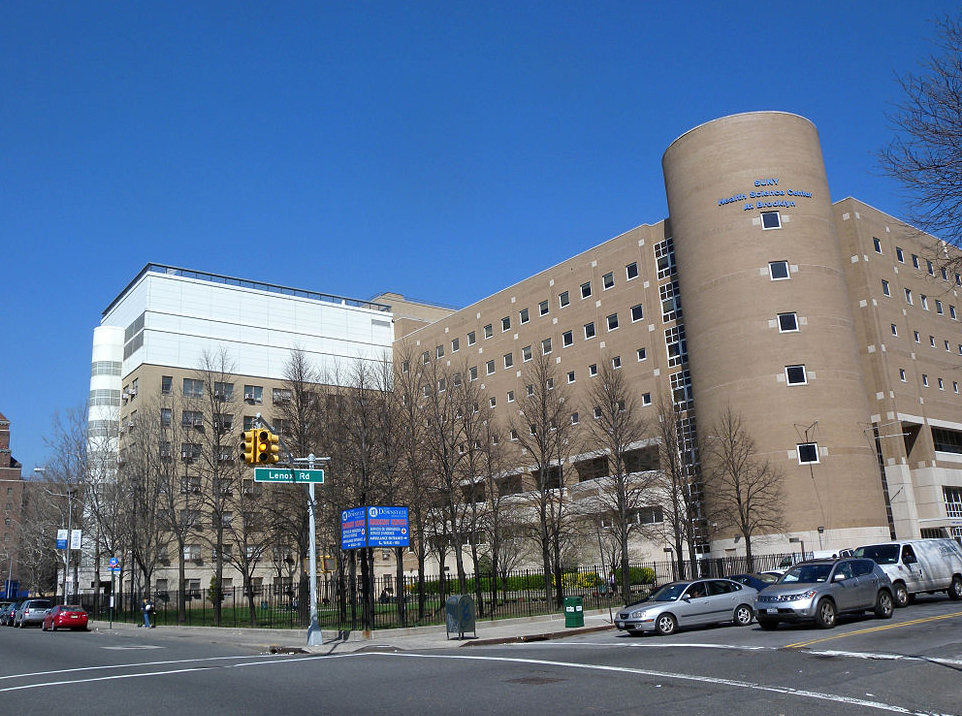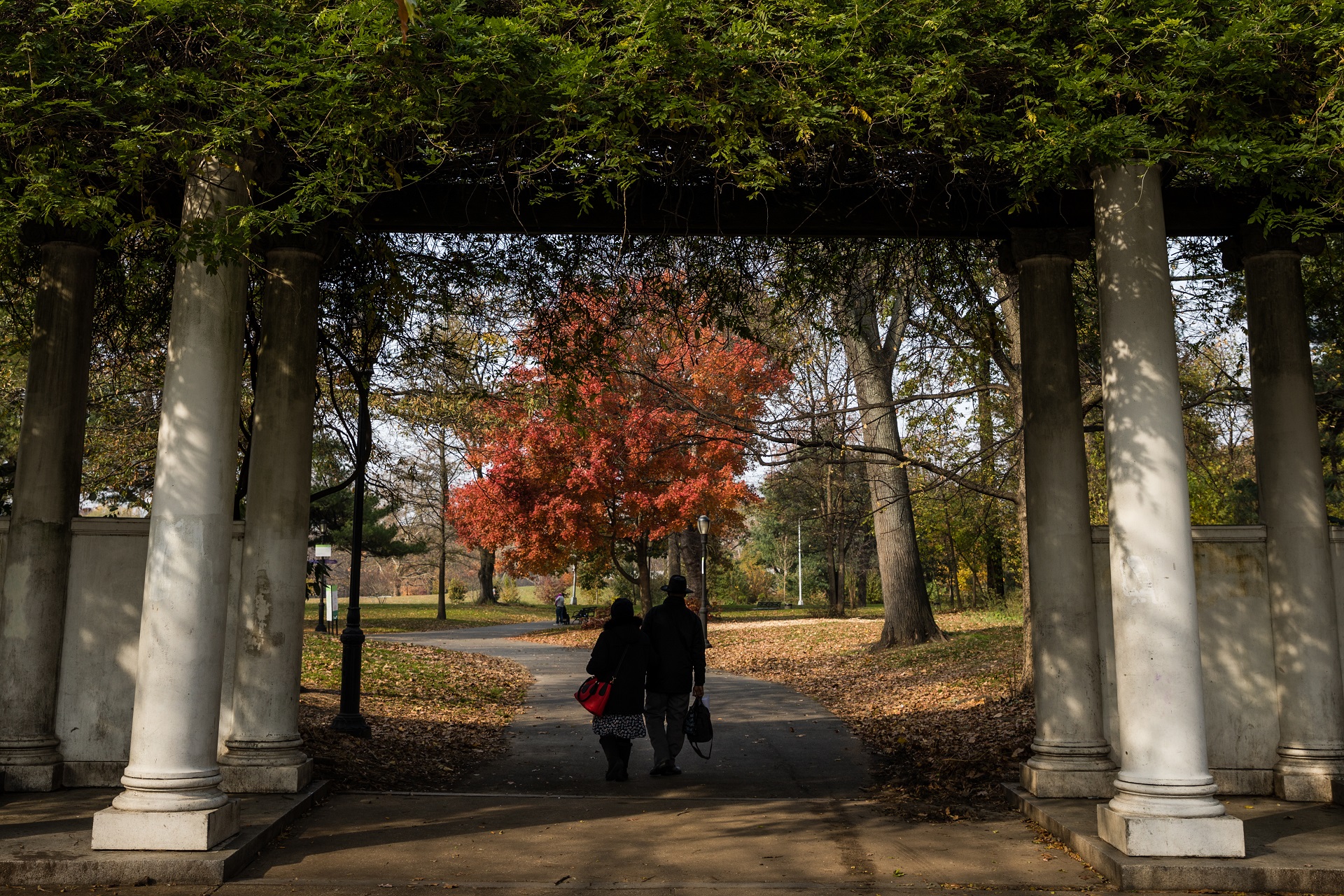Legionnaires’ bacteria cleanup ongoing at SUNY Downstate’s Brooklyn hospital
Patients drinking bottled water, taking ‘bath in a bag’

SUNY Downstate Health Sciences University in East Flatbush. Photo by Jim Henderson via Wikimedia Commons
The water taps are still turned off at SUNY Downstate’s University Hospital of Brooklyn following the discovery of the bacteria that causes Legionnaires’ disease in the drinking water, Downstate Associate VP Dawn Walker told the Brooklyn Eagle on Monday.
“Restrictions are still in place until we’re done with showerhead replacements and filter replacements in the ice machines,” Walker said.
Patients at the Prospect Lefferts Garden hospital are being supplied with bottled water for drinking, medications and brushing teeth and provided with “bath in a bag” products in lieu of using showers.
